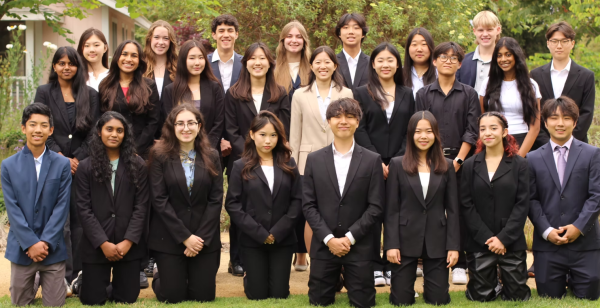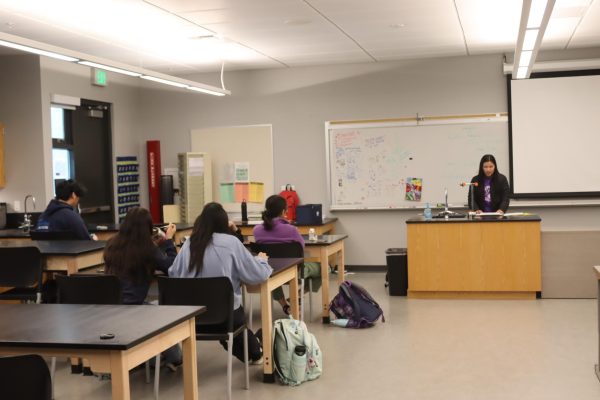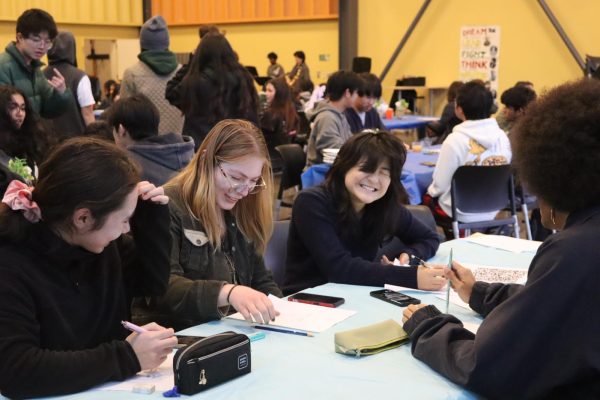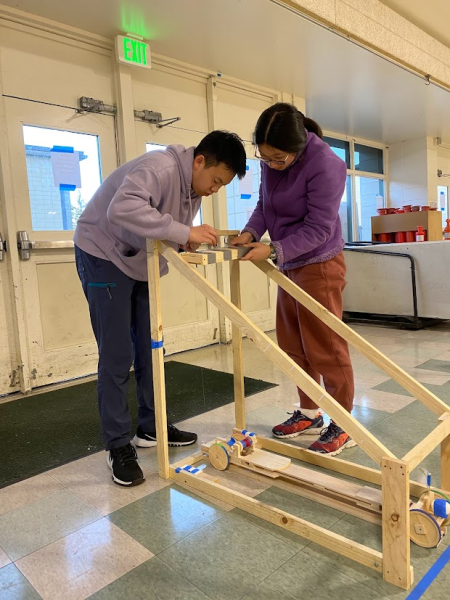Battle of the English classes
Teachers break down junior year English classes offered
Freshman and sophomore year leave little room for schedule customization, but students are welcomed into their junior year with stress from their course loads and a new sense of freedom. During their third year of high school, students have a greater variety of classes to select from, including literature classes.
Students have three options to choose from: College Prep American Literature, American Studies and American Literature Honors. Each class is defined by its own challenges, expectations and units, Honors and College Prep American Literature teacher Ashley Pitta said.
“The difference is in a few things: the units we cover and the pacing we have,” Pitta said. “For American Literature, it is a bit more of a slower pace, but it has different units so it works out. Whereas in honors, you hit the ground running.”
College Prep American Literature and American Studies teacher Lisa Clausnitzer said the differences of the two levels all boil down to pace, volume and level of sophistication.
In addition, the expectations for writing are different between the two classes, Pitta said. More formal styles of writing are done in American Literature Honors with the units being closer together thus increasing the pace, she said.
Many students lack a proper understanding regarding the difficulty of a more advanced English course, Honors American Literature teacher Kirk Hinton said, which can make the transition a challenge for some students.
“I think among some people there’s a perception that, even though it’s honors, it’s English, which makes it easier than other honors classes or AP classes,” Hinton said. “I haven’t found that to be the case. I think it is just as challenging as another honors or AP class, maybe in a different way.”
Pitta said the misconception surrounding Honors Literature being easy means many students assume they are going to do well without effort. There is a large emphasis on trying to earn a high grade without taking the time to truly understand the content, which is what teachers are trying to avoid, Pitta said.
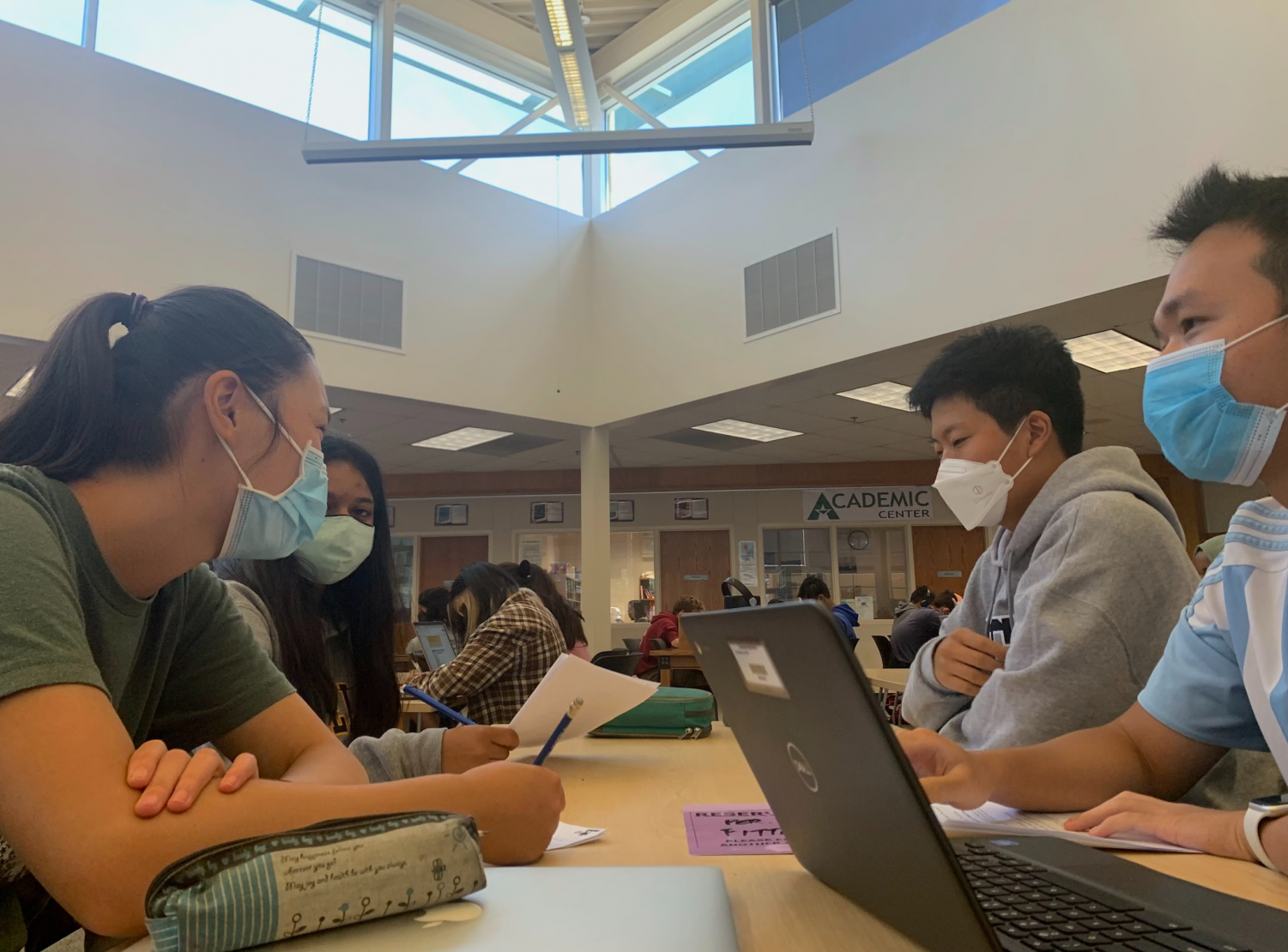
“I’m trying to pull away from the, ‘it’s all about the grade,’” Pitta said. “It’s not, but that is the misconception. The emphasis in World Literature shifts from writing to other things that kind of help buffer that writing component of the grade. Whereas in honors, it shifts a lot more to content and what you’re actually saying.”
Pitta said she also wishes students would have more faith in doing multiple revisions of their writing. Pitta said the process may involve writing a thesis, an outline and checking them with the teacher. It may also involve reviewing, revising and rewriting an essay, even after you have finished it, Pitta said.
“[I want students to know] the value in trusting the process,” Pitta said. “You don’t just learn [the process of writing] after writing one essay. So a lot of times kids will be frustrated.”
Pitta said students also seem to fear asking their teachers for help in honors-level classes.
“Another misconception is that the honors teachers are these hardheaded, mean [people],” Pitta said. “It’s not [true], I’m here to help you. But, sometimes kids get afraid or they’re just hesitant to ask because they’re worried about the perception that the teacher has of them because they need help.”
Like Honors Literature, Pitta said students assume College Prep American Literature does not require effort and can be an ‘easy A,’ which is difficult for her to see since many students do not even try. The main goal of any literature class is to improve, but it is impossible when students do not focus enough, Pitta said.
“I want to push my students and I want to hold them to certain standards, whether they’re in college prep or honors,” Pitta said. “But kids will be like, ‘well this is low on my list of importance, so I won’t finish the assignment or I won’t be prepared for the discussion, because I know that I’ll get an A anyway.’”
For American Studies, however, Clausnitzer said the misconceptions center around the dynamics of the class since it is unique from any other course offered at HHS.“I know a lot of people say they fear group work,” Clausnitzer said. “But aside from where we put you at tables, every group assignment is a self-selected group. We want to have you work with people and talk through ideas because that’s how we learn and grow.”
For Honors Literature however, Hinton said despite the misunderstandings students have, he enjoys the level of excitement they have about the class.
“I enjoy that everybody that’s in the class has chosen to be in that class in some way or shape,” Hinton said. “So there tends to be more buy-in and more willingness to participate and do what I’m asking them to do.”
Pitta said she enjoys the different dynamics of the discussions in College Prep American Literature.
“[For] college prep, we’re just finishing up our Native American unit, and I like the small group settings that we do for that unit. There’s a little bit more intimate discussion,” Pitta said. “And what comes out of those discussions is kind of cool. It’s a lot of questions like, ‘oh, I never knew that existed or that happened,’ especially around the Native American boarding schools, there’s been a lot of interest.”
Clausnitzer said she enjoys American Studies because it means having two subjects taught together in one class due to their similarities and ability to use one for the other.
“I love that it’s an opportunity to integrate two subjects that complement each other and should complement each other because in society, what happens in actual society does affect art and informational texts,” Clausnitzer said. “It makes history not just a bunch of names and dates. That then lends itself to a deeper understanding of those subjects.”
Pitta said regardless of the class students take, she wants her own students to come out of the school year looking for deeper meanings in the literature they consume.
“Ultimately, when they leave my class, I want them to be more capable readers,” Pitta said. “They are looking for purpose in their reading. Not just if they enjoyed the story. They’re looking for, ‘what was the purpose in this writing, what is the bigger meaning, how do I connect that to my life,’ so it sticks.”
Clausnitzer said while she hopes students become better readers and writers, her number one priority is making the class enjoyable for students and they feel taken care of.
“I hope that students walk out of my classes, knowing that I’m a teacher who cares about them, that I prioritize their wellness above what they’re able to turn in for credit, because if you’re not physically healthy, not socially, emotionally okay, then all that other stuff doesn’t matter,” Clausnitzer said. “I hope they remember they were challenged, it was fair and they came out of class a better writer and reader.”
Joss is a senior who is in his second year on The Epitaph Staff. He is looking forward to writing about the HHS community, politics, and social justice...



